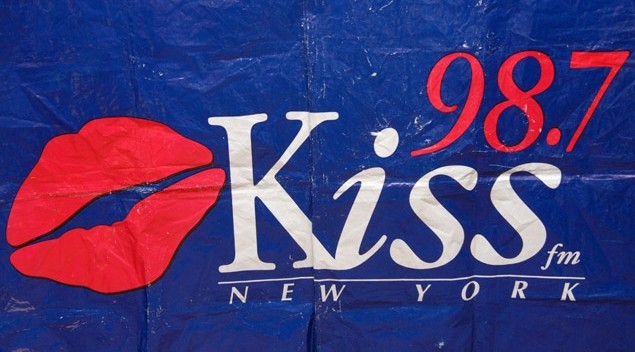NYC’s WBLS and KISS FM Become One?
Retrieved from our friends at the New York Daily News
April 26, 2012
After 30 years as spirited and often ferocious rivals, WBLS (107.5 FM) and WRKS (98.7 FM, Kiss-FM) will become one.
In a turn as sudden and stunning as the Yankees merging with the Mets, the city’s two adult urban radio stations announced in a joint press release Thursday that they will become “One Family, One Station.”
Kiss and WBLS began simulcasting at 10 a.m. Thursday, starting with a tribute to the 30-year legacy of Kiss.
As of 12 a.m. Monday they will become a single station at 107.5 FM, under the WBLS call letters. What does this mean for gospel announcers like Hezekiah Walker and Liz Black, who fall under the WBLS umbrella (at their sister station WLIB AM)
RELATED: ESPN TAKES OVER 98.7 FM FREQUENCY
It is likely this news will not please all listeners, many of whom feel there are already too few black media voices in the city.
The merger is part of a major reshuffling triggered when Disney agreed to acquire 98.7 FM from Emmis.
The complicated $96 million deal essentially lets Disney lease 98.7 FM as of Monday morning, when it will start simulcasting ESPN radio there. ESPN radio is now heard on the weaker 1050 AM signal.
Disney had been thirsting for an FM signal so it can better challenge CBS Radio’s all-sports WFAN (660 AM).
A key factor in this new deal is that WRKS and WBLS have both had financial problems, at the stations themselves and with their parent companies.
Emmis last year also sold its 101.9 FM frequency in New York.
WBLS was recently acquired by YMF Partners after its parent company Inner City Broadcasting went into bankruptcy. This had led to considerable speculation whether YMF would sell WBLS or change its format.
It was expected that any move to change the WBLS format to something other than urban, which launched in 1971, would have met strong community resistance.
In several ways Thursday’s move is a classic case of two companies in a shaky financial position deciding they would be stronger if they worked together as one.
Still, the merger changes the landscape of urban radio dramatically, since adult urban listeners now have one station instead of two.
Both WBLS and WRKS have been the top-rated station in the city at various times, and even in low periods they have routinely averaged well over a million listeners apiece per week.
As for hosts, the merger will integrate them starting Monday.
Steve Harvey’s syndicated show, now heard on WBLS, will continue in the morning.
Shaila from Kiss will do middays, 10 a.m.-3 p.m., Jeff Foxx from WBLS will do 3-7 p.m., and Lenny Green from Kiss will do 7 p.m.-midnight.
That means Tom Joyner and Michael Baisden of WRKS, among other hosts, will be gone.
Since the WRKS name is also disappearing, the two stations are jointly holding a “celebration of the legacy of Kiss-FM” all weekend.
Over the years Kiss has often emphasized the heritage of black music, and has hired hosts like Isaac Hayes. In the 1990s it launched a “classic soul” format that shot it to the top of the ratings for several years.
In recent years it has slumped, however, and Emmis Chairman Jeff Smulyan Thursday blamed some of that on Arbitron’s switch to a new ratings system, the Personal People Meter (PPM).
PPM replaced the old “diary” system, where participants wrote down their listening, with an electronic recording device.
Almost all black and ethnic stations saw a dramatic drop in their ratings under the PPM system. A stream of protests and litigation have led to recent agreements that Arbitron would increase its efforts to reflect all listening fairly.
Meanwhile, however, many black and ethnic stations have warned that the lower ratings plus the general economic recession have decimated their ad revenue and put them in serious financial trouble.
Smulyan echoed that caution Thursday, saying in a release that “recent changes in the way radio ratings are measured made it very difficult for us to find success with Kiss FM.”
Whatever the reasons, New York will wake up Monday morning with one fewer radio station serving urban listeners.



